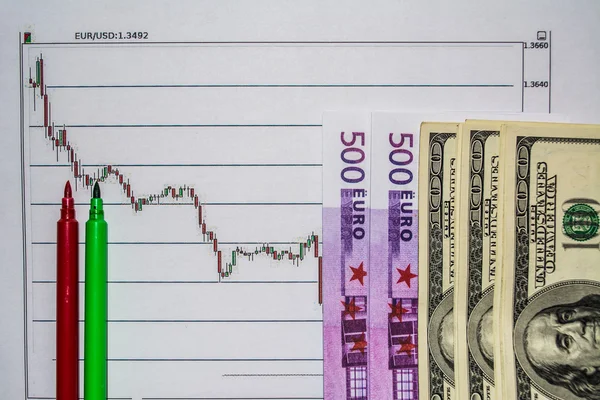
International Compliance: What Iranian Forex Traders Should Know
Disclaimer: This article is informational and not legal advice. Sanctions and financial regulations change frequently; verify specifics with counsel before acting.
1) The Sanctions Backbone You Must Understand
The United States’ Office of Foreign Assets Control (OFAC) maintains a comprehensive Iran program that restricts most financial services with Iran, including provision of services by U.S. persons and many transactions that pass through the U.S. financial system. Violations can trigger asset freezes and secondary sanctions exposure for non-U.S. parties.
In late September–October 2025, the EU, UK and (by reference to UN measures) other partners re-imposed wide-ranging Iran restrictions—reviving earlier prohibitions that include asset freezes for major Iranian banks and tighter trade/finance controls. This climate materially raises counterparty and payment risk for Iran-connected persons and transactions.
2) Why Banks and Brokers Say “No”: FATF & Messaging Constraints
Iran remains on the Financial Action Task Force (FATF) list of High-Risk Jurisdictions subject to a Call for Action. This status prompts enhanced due diligence, de-risking, and, in practice, frequent denial of services by global brokers and payment providers.
Separately, specialized financial messaging providers (e.g., SWIFT) are prohibited from serving EU-sanctioned Iranian banks, limiting reliable bank-to-bank payment rails even when commercial intent is lawful.
3) KYC/AML in Practice: What Reputable Brokers Require
Regulated brokers implement “source of funds,” “source of wealth,” and residency screening. Expect enhanced due diligence if you are an Iranian national or resident, and be aware that many regulated brokers will decline onboarding if any Iran nexus could breach sanctions or internal risk policies. New and frequently updated sanctions designations against Iranian networks are an ongoing trigger for compliance teams.
Broker Controls vs. Iran-Specific Constraints
| Control | Global Regulated Brokers (Baseline) | Added Impact for Iranian Traders |
|---|---|---|
| KYC/ID & Proof of Address | Passport/ID, utility bill; sanctions screening of names/entities | Higher false-positives; many firms decline onboarding if residence or payments tie to Iran |
| Source of Funds/Wealth | Bank statements, payslips, tax returns | Banking gaps and de-risking create documentation and transfer hurdles |
| Payments & Withdrawals | Bank wires, approved fintechs; travel-rule compliance for crypto | SWIFT limits for Iranian banks; EU/UK snapback expands counterparties at risk of being blocked |
| Ongoing Screening | Adverse media, PEP/sanctions list updates | Frequent list changes raise sudden account-freeze risk |
4) Crypto Angle: The Travel Rule and VASP Friction
If you route funds via crypto, the FATF “Travel Rule” (Recommendation 16) compels exchanges and other virtual asset service providers (VASPs) to collect and exchange sender/recipient identifying information for transfers. In 2025 FATF tightened R.16 to increase cross-border payment transparency and anti-fraud controls—expect more stringent data checks and more blocked transfers when origin/destination are unclear or high-risk.
5) Tax Transparency & Information Sharing
Many jurisdictions participate in the OECD’s Common Reporting Standard (CRS), automatically exchanging account information to tax authorities. Even where Iran is not a participating jurisdiction, counterparties in CRS-adopting countries still run rigorous KYC and may report account data to their own authorities—another reason to keep records and file accurately where you are tax-resident.
6) Practical Risk-Reduction Checklist
- Screen everything. Before engaging a broker, review OFAC’s Iran program page and the latest EU/UK measures. If your counterparty (or their bank) is listed, do not proceed.
- Avoid Iran-touching payment chains. Even indirect routing through Iran-linked banks or correspondents can cause rejects or freezes due to SWIFT/EU prohibitions.
- Prefer top-tier regulation. Where available, use brokers supervised in strong AML jurisdictions; keep complete KYC packages (ID, proof of address, tax number, employment, SOF/SOW).
- Crypto compliance. Use VASPs with robust Travel Rule tooling; be ready to provide origin/destination details and proofs.
- Keep immaculate records. Trade logs, deposits/withdrawals, and tax filings should be contemporaneous and consistent with declared sources.
- Get local advice. Your obligations depend on residency and where accounts are held; a sanctions/tax attorney can map a compliant path.
At-a-Glance: What Is Typically Permitted vs. Prohibited
| Category | Generally Permitted (subject to broker policy & local law) | Commonly Prohibited / High Risk |
|---|---|---|
| Account Opening | With non-sanctioned brokers where the client is outside sanctioned territory and passes enhanced due diligence | Accounts involving Iranian banks or services provided to persons in Iran by U.S./EU/UK institutions |
| Payments | Wires via non-sanctioned banks; compliant VASP transfers with full Travel Rule data | Payments routed through EU-sanctioned Iranian banks; any transaction implicating sanctioned parties |
| Trading | Spot/CFD trading with regulated counterparties following KYC/AML rules | Transactions designed to evade sanctions or obscure Iranian nexus |
Bottom Line
For Iranian forex traders, the legal landscape is defined by OFAC, EU/UK measures, FATF pressure, and payment-rail constraints. Compliance is not just paperwork—it determines whether you can open, fund, and keep an account operational. Build a conservative, well-documented approach, assume heightened scrutiny, and verify counterparties against the latest sanctions lists before every major step.